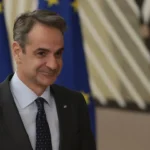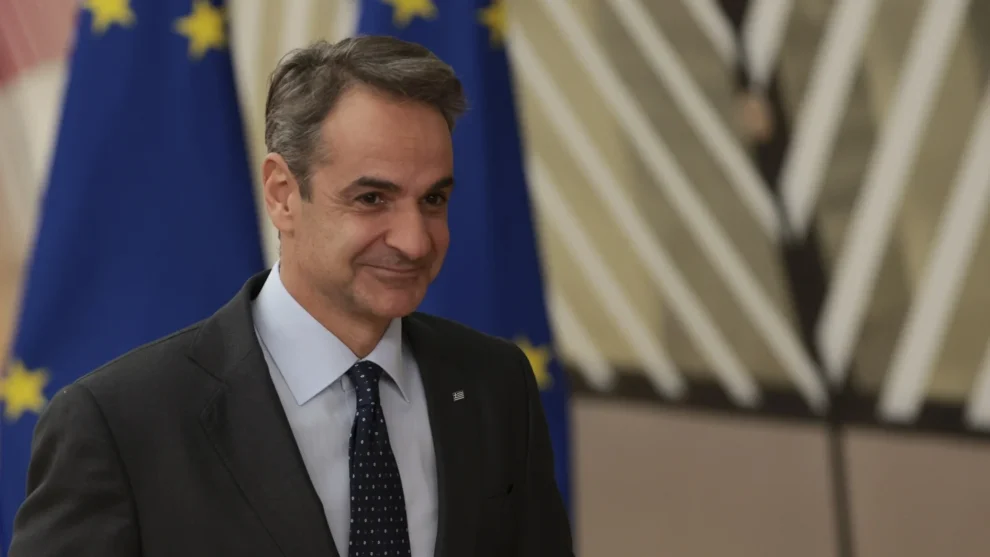Greece has linked its support for Albania’s European Union membership bid to the protection of the ethnic Greek minority in Albania, Prime Minister Kyriakos Mitsotakis said on December 18.
Athens has advocated for the European integration of the Western Balkans but has tied its support for neighbouring Albania to specific commitments.
Relations between the two countries were strained last year when Albanian authorities arrested Fredi Beleri, an ethnic Greek politician, on vote-buying charges during his mayoral campaign in Himare, a coastal town with a significant Greek population.
The case prompted Greek officials to demand Beleri’s release, threatening that otherwise Athens would block Albania’s EU accession process.
Despite his imprisonment, Beleris secured a seat in the European Parliament this year as a candidate for Mitsotakis’ ruling New Democracy party and was subsequently released.
Speaking at a contract-signing ceremony for a new road connecting Ioannina in northwestern Greece to the Albanian village of Kakavija, Mitsotakis spoke of Athens’ commitment to fostering friendly relations with its northern neighbour. However, he stressed that Albania must fulfil long-standing obligations concerning the property and civil rights of its ethnic Greek community, the largest minority group in the country.
“There is a continuous path of conditionality towards the European Union, where we essentially regulate the pace at which Albania progresses toward Europe,” Mitsotakis said, ahead of his trip to Brussels for an EU-Western Balkans summit, as quoted by Greek media.
“The speed of Albania’s progress depends on its commitment to fulfilling these obligations,” he added.
Mitsotakis reiterated his point on arrival at the EU-Western Balkans summit in Brussels. “I would like to stress once again that Greece is essentially the “guardian” of Albania’s European course and that the issues concerning the protection of the Greek National Minority, the safeguarding of their property rights, the right to self-determination are not bilateral issues, but issues which now concern Albania’s relations with the European Union,” he said.
“I am pleased by the fact that for the first time in many years we have significant mobility on the part of Albania in addressing these issues. And I would say that this is the best proof, because ultimately the European course of the Balkan countries can also lead to the resolution of such chronic issues when they are reduced from bilateral to European issues.”
Albania, along with other Western Balkan states including Bosnia, Kosovo, Montenegro, North Macedonia and Serbia, has long sought EU membership. However, the accession process has faced delays due to the slow pace of reforms and dwindling enthusiasm for enlargement among existing EU members.
The accession process was revitalised after Russia’s invasion of Ukraine, which was followed by the decision to give candidate status to four new countries, as well as advancing the EU path of Albania and other existing candidates.
Also on December 18, Greek Foreign Minister George Gerapetritis reaffirmed Greece’s backing of Serbia’s EU aspirations following a meeting with Serbian Ambassador Marko Djuric in Athens. “Serbia’s accession to the European Union is a geopolitical necessity,” Gerapetritis said.
Greece previously blocked North Macedonia’s EU progress for years, objecting to the country name “Macedonia”, which is the same as a Greek province. Only the decision to rename the country “North Macedonia” led to its progress being unblocked.















